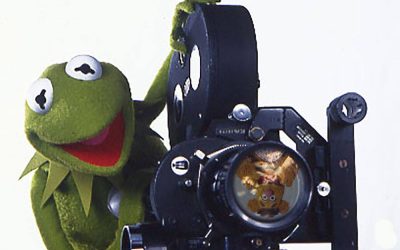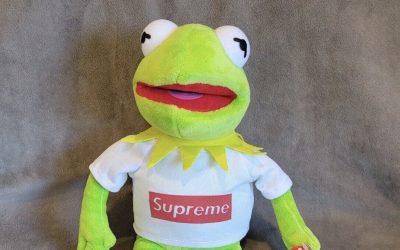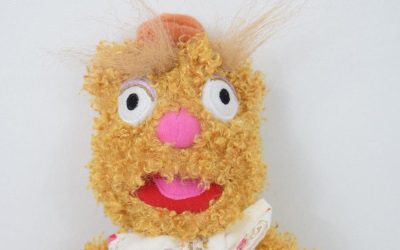Muppet Book Club
“The Great Twiddlebug Mystery”
 Um, hello? Did anybody notice that as soon as Tough Pigs started our Muppet Book Club discussion salon a couple months ago, all of a sudden Little Miss Oprah Winfrey decides that she’s going to start doing her book club again?
Um, hello? Did anybody notice that as soon as Tough Pigs started our Muppet Book Club discussion salon a couple months ago, all of a sudden Little Miss Oprah Winfrey decides that she’s going to start doing her book club again?
Did you notice that? Looks like somebody in the room has some control issues. That girl needs to step off.
 But I’m not going to sink to her level. Somebody here has to be the bigger person — and as hard as it is to be a bigger person than Oprah, I’m going to give it a shot. So I’m just going to step aside and announce the third selection in the Muppet Book Club: Sherlock Hemlock and the Great Twiddlebug Mystery, a Whitman Tell-A-Tale Book published in 1972 by Western Publishing. The book is credited to Betty Lou, but my guess is that it was written by Revena Dwight and illustrated by Roger Bradfield, the team behind the 1971-72 Sesame classics The Together Book and Bert’s Hall of Great Inventions.
But I’m not going to sink to her level. Somebody here has to be the bigger person — and as hard as it is to be a bigger person than Oprah, I’m going to give it a shot. So I’m just going to step aside and announce the third selection in the Muppet Book Club: Sherlock Hemlock and the Great Twiddlebug Mystery, a Whitman Tell-A-Tale Book published in 1972 by Western Publishing. The book is credited to Betty Lou, but my guess is that it was written by Revena Dwight and illustrated by Roger Bradfield, the team behind the 1971-72 Sesame classics The Together Book and Bert’s Hall of Great Inventions.
You’re invited to come join the Book Club meeting on the Tough Pigs Forum message board, where we’ll be analyzing this book from top to bottom over the next few days. Even if you’ve never posted at the Forum before, feel free to come in anyway. Everybody’s welcome at my Book Club. I think I’ll even invite Jonathan Franzen. Take that, Oprah!



p1

p2

p3

p4

p5

p6

p7

p8

p9

p10

p11

p12

p13

p14

p15

p16

p17

p18

p19

p20

p21

p22

p23

p24

p25

p26

p27

p28


Suggested Discussion Questions:
1. This book is about clashing belief systems, and how to assess the truth value of a given proposition. Sherlock and Betty Lou are examining the same evidence — but Betty Lou is looking for the simplest explanation, while Sherlock is more comfortable making a leap of faith into the unknown. What does the book suggest is the way to resolve competing claims — for example, the struggle between natural scientists and religious conservatives over the theory of evolution?
2. Betty Lou’s controversial statement — “I think most people would agree with me!” — is as unfounded and off-the-cuff as Sherlock’s conclusions. She has no basis for claiming to have swayed a majority opinion. And yet she makes this statement with a kind of smug certainty. Does this strengthen or weaken her argument?
3. In the information age, it’s not possible for someone to personally have exhaustive knowledge of every phenomenon. Often, we have to accept the assurances of experts, because they have specialized knowledge that we lack. What does this book teach children about whether to trust adult experts?
4. Why is Herry so mad at those Twiddlebugs, anyway?
Click here to read the Book Club comments on The Great Twiddlebug Mystery!



